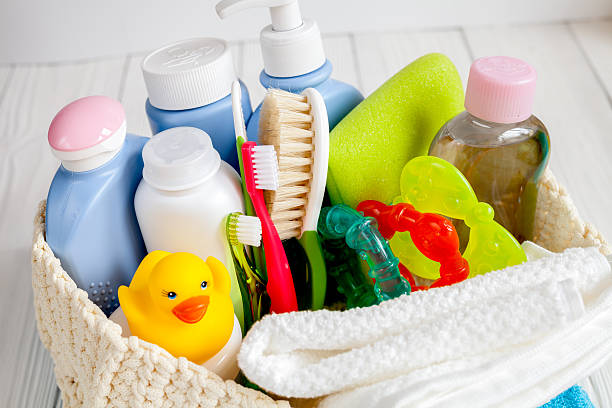
More than a decade ago, a collaborative investigation effort of various nonprofit and advocacy groups conducted independent laboratory test and found dozens of “secret chemicals in 17 leading fragrances”. Many of these ingredients, which have been linked to different serious health problems, including cancer, are still being poorly regulated and some companies that manufacture these toxic cosmetic products can even advertise deceptively and manipulatively without being questioned by the Food and Drug Administration (FDA) and other related agencies. As reported by Dr. Joseph Mercola recently:
“…the Campaign for Safe Cosmetics found 38 secret chemicals in 17 leading fragrances including top offenders from American Eagle, Coco Chanel, Britney Spears and Giorgio Armani.”
Among these secret chemicals are chemicals that are not listed on the label, known to cause “hormone disruption and allergic reactions”. They are being mixed and synthesized to create scents for these popular “personal care products”, hidden under the terms that completely disguise the dangers such as “exotic, musky, floral”, etc., most of which have never been properly assessed for safety whatsoever.
The Environmental Working Group (EWG) that conducted the Campaign for Safe Cosmetics research found the unknown hazards being post by these popular and branded perfumes, colognes, and body sprays. These substances usually contain dozens of potentially dangerous chemicals that are derived from petroleum. Most of these also have unknown ingredients that are very toxic to our body tissues or that can adversely affect fertility. As Dr. Mercola claimed:
“Undisclosed ingredients also include chemicals that accumulate in the human tissue, such as diethyl phthalates, found in nearly 97% of Americans and linked to sperm damage. Their report also found the FDA was similarly uninformed, as a review of government records revealed a vast majority of the chemicals used in fragrances were not assessed for safety when used in spray-on personal care products.”
Scary to some, it’s sad to admit that governments have no real power to regulate and control these seemingly criminal system, the financial machine that doesn’t regard safety or real security for the consumers. As the said evidences that have been reported from the research now have become easily available, it’s a puzzle why there’s not enough action from the government’s end and why people are still being left uneducated about these daily products that can be found in most households, including parents that are using baby products on a daily basis.
When it comes to marketing, there are also entities that are being designated to do the right job. Using psychological and emotional manipulation tactics, these toxic products become harmless and essential to the eyes of the public with the help of corrupt regulators. As a matter of fact, these toxic products cannot penetrate the mainstream without bribing politicians and without being heavily and sensationally touted by the media. And as an old but effective strategy to resist from government regulation, these companies fight against disclosures and other forms of control by lobbying and providing incentives. As Dr. Mercola wrote in his report:
“Millions of dollars and countless hours of lobbying have been poured into the industry’s fight against legislatively mandated ingredient disclosure. Fragrance is a big business as they are used in personal care products and cleaning products.”
One example to these counter-efforts is the Fair Packaging and Labeling Act. Under this law, the companies are protected by the so-called “trade secrets” if they do not want to disclose the ingredients of a particular product, be it related to fragrances and flavor ingredients. This is, of course, very disadvantageous to consumers especially to those who carefully select which products they want to use. What is worse, according to Dr. Mercola, is that some of these beauty and personal care products have been discovered to have chemicals that are more hazardous than cleaning products, and are being marketed even to children.
According to Dr. Mercola’s recent report, some of the most hazardous brands identified in the research are Just for Me Shampoo, Kaboom with OxiClean Shower Tub & Tile Cleaner, Axe Phoenix Body Spray, JLo Glow Perfume, White Linen Perfume, Formulation 64-RP, Organix (OGX) Shampoo, and Marc Jacobs Daisy Perfume.
To read the full article by Dr. Mercola, go to this link:
More references:
https://www.ewg.org/sites/default/files/report/SafeCosmetics_FragranceRpt.pdf





